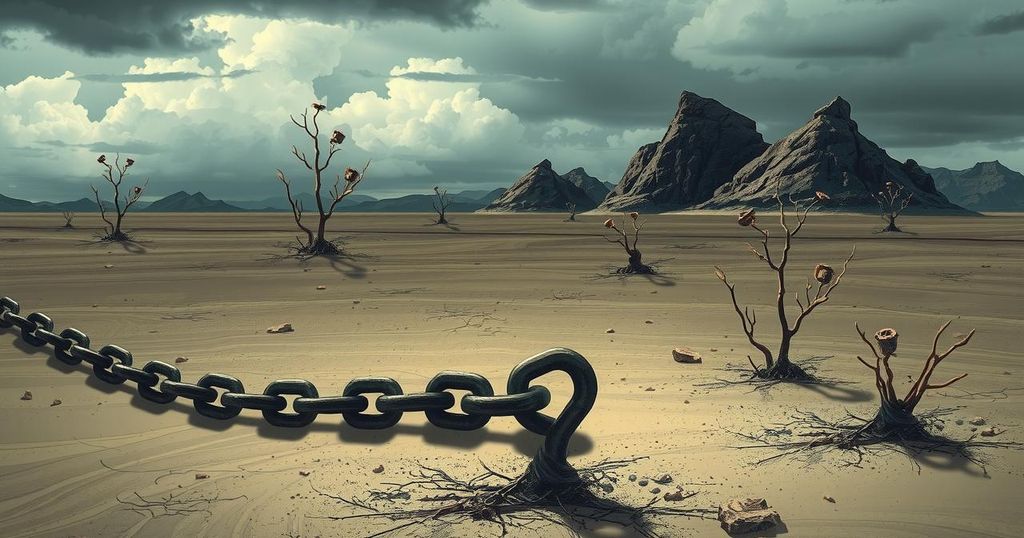The Intersection of Modern Slavery and Climate Change in Africa

Extreme weather events linked to climate change are increasingly contributing to modern slavery in Africa. Vulnerable populations face heightened exploitation as livelihoods are lost, driving practices such as forced labor and marriage. Addressing this issue requires robust legal measures, regional cooperation, and integration of anti-slavery considerations into climate policy.
Climate change is exacerbating existing structural inequalities, leading to a rise in modern slavery, particularly in Africa. Weather-induced disasters, like floods and droughts, undermine livelihoods and increase the vulnerability of populations, paving the way for exploitation. Legal scholar Daniel Ogunniyi highlights the connections between climatic changes and modern slavery, illustrating that the impacts go beyond mere environmental degradation, affecting the socio-economic fabric of societies.
In summary, addressing modern slavery in Africa necessitates a multifaceted approach that includes stringent legal frameworks, regional collaboration, and educational initiatives. It is vital to integrate anti-slavery measures into comprehensive climate policies to mitigate the effects of climate change on vulnerable populations. Additionally, companies in the renewable energy sector must ensure human rights due diligence in their operations.
Original Source: theconversation.com






